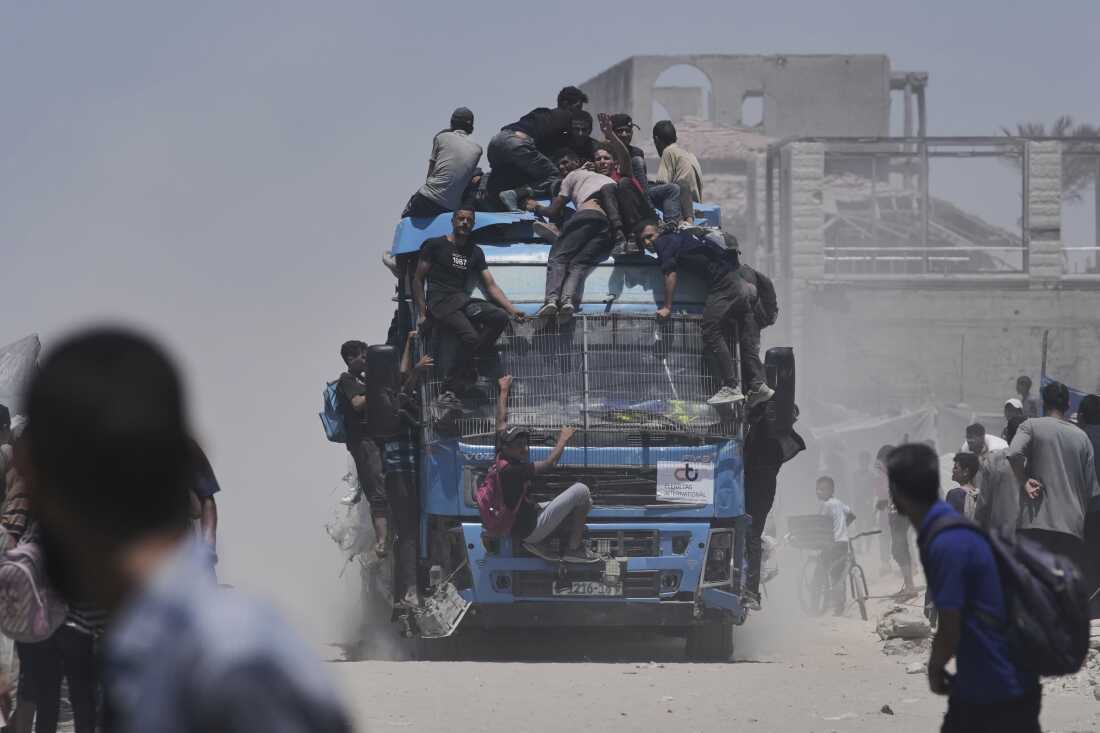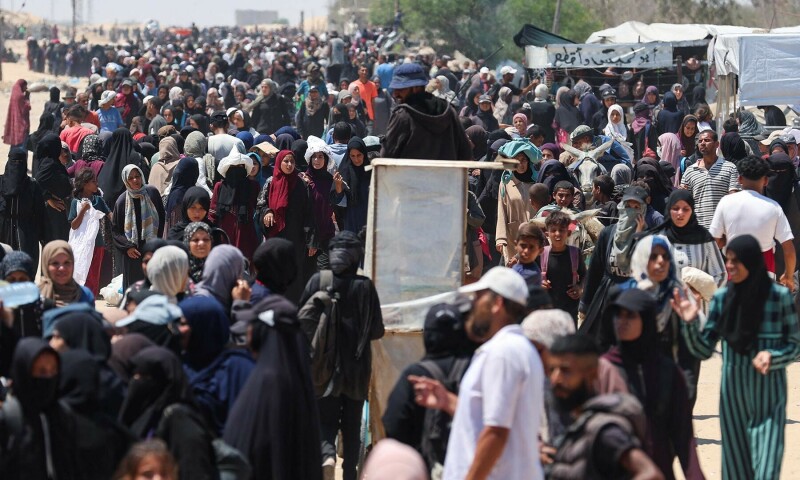A Path to Peace: Ending the Suffering in Gaza
The humanitarian crisis in Gaza demands immediate and unwavering global attention—not only in the name of justice but in defense of our shared humanity. The suffering endured by over two million Palestinians in Gaza—men, women, and children—is intolerable. For too long, they have lived under siege, displacement, poverty, and the shadow of violence. Justice delayed is justice denied. The time for bold, coordinated action is now.
Hamas, though it maintains control over parts of Gaza, does not represent the will or welfare of the Palestinian people. Its ideology, rooted in extremism and armed resistance, continues to undermine hopes for peace and development. While estimates suggest that only a few thousand active fighters remain, their presence exerts a disproportionate and destructive influence over the region. For any real peace to take root, Hamas must surrender or be dismantled.
It is essential to recognize a crucial truth: the Palestinian people in Gaza are not Hamas. They are a diverse, resilient population—students, farmers, artists, engineers, and mothers—who long for security, opportunity, and dignity. Their lives must no longer be held hostage by geopolitical gridlock or militant ideology.
If Hamas refuses to stand down, the Israeli military—backed by international partners—must act decisively and ethically. Military action must adhere to international humanitarian law, distinguishing clearly between combatants and civilians. The protection of innocent lives must be a guiding principle, not an afterthought.
A practical and immediate step is the creation of demilitarized humanitarian safe zones in southern Gaza. These areas, free from Hamas influence and protected through international oversight, can serve as centers of refuge and relief. Tent cities with secure perimeters, checkpoints, and unrestricted humanitarian access could provide shelter, medical care, clean water, education, and basic services. The goal must be not just survival, but the beginnings of recovery.
The long-term objective should be transformative: a peaceful, democratic Gaza governed by accountable leadership committed to rebuilding and reconciliation. Imagine a Gaza where the vast network of tunnels—once tools of war—are sealed and repurposed for civilian infrastructure. A Gaza where Hamas is dissolved, its ideology rejected, and a new generation of leaders emerges to champion prosperity, education, innovation, and human rights.
This is not a utopian dream; it is a moral and strategic imperative. Just as post-war Germany was rebuilt from the ashes of Nazism—with the support of the international community—so too can Gaza rise from the ruins. The Marshall Plan lifted Europe. A similar effort, shaped for modern realities, could help lift Gaza.
This vision demands international cooperation. The United States and Israel bear unique responsibilities, but they cannot and should not act alone. Arab nations—especially Egypt, Saudi Arabia, Qatar, Jordan, and even Iran—must contribute to a multilateral peace framework that prioritizes Palestinian self-determination and regional stability. The European Union, UN agencies, and global civil society also have vital roles to play.
The precedent for peace exists. What’s missing is the political courage to pursue it with urgency and integrity.
The time to end the suffering in Gaza is not in years—it is now.
-
Hamas must surrender or be neutralized.
-
Humanitarian safe zones must be established immediately.
-
A global reconstruction and peace plan must be developed and launched.
Call to Action: We must demand accountability and vision from all involved parties—Hamas, Israel, the United States, and regional and international powers. Let us raise our voices for the Palestinian people's right to live free from fear, siege, and suffering. Share this vision. Demand action. The future of Gaza—and the moral credibility of the world—depends on it.
शांति की ओर एक रास्ता: ग़ाज़ा में पीड़ा का अंत
ग़ाज़ा में चल रहा मानवीय संकट तत्काल और अटूट वैश्विक ध्यान की माँग करता है—न केवल न्याय के लिए, बल्कि हमारी साझा मानवता की रक्षा के लिए। ग़ाज़ा में दो मिलियन से अधिक फ़िलिस्तीनी—पुरुष, महिलाएं और बच्चे—जो पीड़ा झेल रहे हैं, वह असहनीय है। वर्षों से वे घेराबंदी, विस्थापन, ग़रीबी और हिंसा की छाया में जीने को मजबूर हैं। न्याय में देरी, न्याय से इनकार के समान है। अब साहसी और समन्वित कार्रवाई का समय है।
हमास, जो ग़ाज़ा के कुछ हिस्सों पर नियंत्रण बनाए हुए है, फ़िलिस्तीनी जनता की इच्छा या भलाई का प्रतिनिधित्व नहीं करता। उसकी विचारधारा, जो कट्टरता और सशस्त्र संघर्ष पर आधारित है, शांति और विकास की आशाओं को लगातार नुकसान पहुँचाती है। आँकड़ों के अनुसार हमास के केवल कुछ हज़ार सक्रिय लड़ाके शेष हैं, लेकिन उनका प्रभाव असमान रूप से विनाशकारी है। स्थायी शांति के लिए, हमास को आत्मसमर्पण करना होगा या समाप्त किया जाना चाहिए।
यह समझना अत्यंत आवश्यक है कि ग़ाज़ा के फ़िलिस्तीनी नागरिक हमास नहीं हैं। वे एक विविध और संघर्षशील समुदाय हैं—छात्र, किसान, कलाकार, अभियंता और माताएँ—जो सुरक्षा, अवसर और सम्मान की आकांक्षा रखते हैं। उनके जीवन को अब और अधिक राजनीतिक गतिरोध या चरमपंथी विचारधारा के बंधक के रूप में नहीं जीना चाहिए।
यदि हमास आत्मसमर्पण से इनकार करता है, तो इस्राइली सेना को—अंतर्राष्ट्रीय सहयोग के साथ—निर्णायक और नैतिक रूप से कार्य करना होगा। सैन्य कार्रवाई को अंतर्राष्ट्रीय मानवीय कानूनों का पालन करना चाहिए, जिसमें लड़ाकों और आम नागरिकों के बीच स्पष्ट भेद हो। निर्दोष लोगों की सुरक्षा को प्राथमिकता मिलनी चाहिए, न कि केवल एक औपचारिक चिंता।
एक व्यावहारिक और तात्कालिक उपाय यह हो सकता है कि ग़ाज़ा के दक्षिणी भागों में मानवीय सुरक्षा क्षेत्र बनाए जाएँ। ये क्षेत्र, हमास के प्रभाव से मुक्त और अंतर्राष्ट्रीय निगरानी में, राहत और सुरक्षा के केंद्र बन सकते हैं। सुरक्षित शिविरों में, चिकित्सा सुविधा, स्वच्छ जल, शिक्षा और बुनियादी सेवाएँ प्रदान की जा सकती हैं। उद्देश्य केवल जीवित रहना नहीं, बल्कि पुनर्निर्माण की शुरुआत होनी चाहिए।
दीर्घकालीन लक्ष्य एक पूर्ण परिवर्तन होना चाहिए: एक शांतिपूर्ण, लोकतांत्रिक ग़ाज़ा, जो उत्तरदायी नेतृत्व द्वारा शासित हो और पुनर्निर्माण व सामंजस्य के लिए समर्पित हो। कल्पना कीजिए एक ऐसा ग़ाज़ा जहाँ युद्ध के लिए प्रयोग की जाने वाली सुरंगें बंद कर दी गई हों और नागरिक उपयोग के लिए पुनः प्रयोजित हों। एक ऐसा ग़ाज़ा जहाँ हमास को भंग कर दिया गया हो, उसकी विचारधारा को अस्वीकार कर दिया गया हो, और एक नई पीढ़ी का नेतृत्व उभरे जो समृद्धि, शिक्षा, नवाचार और मानव अधिकारों को बढ़ावा दे।
यह कोई काल्पनिक सपना नहीं है; यह एक नैतिक और रणनीतिक अनिवार्यता है। जैसे द्वितीय विश्व युद्ध के बाद नाज़ी जर्मनी को पराजित कर पुनः खड़ा किया गया, और जर्मनी आज लोकतंत्र और समृद्धि का प्रतीक बन गया है—वैसा ही ग़ाज़ा के साथ भी संभव है। मार्शल योजना ने यूरोप को उठाया; आधुनिक परिस्थितियों के अनुरूप एक ऐसी ही योजना ग़ाज़ा को भी उठाने में सक्षम हो सकती है।
इस दृष्टि को साकार करने के लिए अंतर्राष्ट्रीय सहयोग आवश्यक है। अमेरिका और इस्राइल की विशेष ज़िम्मेदारी है, लेकिन वे अकेले यह कार्य नहीं कर सकते। मिस्र, सऊदी अरब, क़तर, जॉर्डन, और यहाँ तक कि ईरान जैसे अरब राष्ट्रों को भी एक बहुपक्षीय शांति ढाँचे में योगदान देना चाहिए, जो फ़िलिस्तीनी आत्मनिर्णय और क्षेत्रीय स्थिरता को प्राथमिकता दे। यूरोपीय संघ, संयुक्त राष्ट्र एजेंसियाँ और वैश्विक नागरिक समाज भी महत्वपूर्ण भूमिका निभा सकते हैं।
शांति के लिए मिसाल मौजूद है। जो कमी है, वह है राजनैतिक साहस और तात्कालिकता के साथ उसे अपनाने की इच्छा।
ग़ाज़ा में पीड़ा का अंत वर्षों में नहीं—अब होना चाहिए।
-
हमास को आत्मसमर्पण करना होगा या समाप्त किया जाना चाहिए।
-
आम नागरिकों की रक्षा हेतु सुरक्षित क्षेत्र तुरंत स्थापित किए जाने चाहिए।
-
एक वैश्विक पुनर्निर्माण और शांति योजना बनाई और लागू की जानी चाहिए।
आह्वान: हमें सभी संबंधित पक्षों—हमास, इस्राइल, अमेरिका, और अंतर्राष्ट्रीय शक्तियों—से जवाबदेही और दूरदृष्टि की माँग करनी चाहिए। आइए हम अपनी आवाज़ उठाएँ फ़िलिस्तीनी जनता के अधिकार के लिए, जिससे वे भय, घेराबंदी और पीड़ा से मुक्त जीवन जी सकें। इस दृष्टि को साझा करें। कार्रवाई की माँग करें। ग़ाज़ा का भविष्य—और दुनिया की नैतिक साख—अब इसी पर निर्भर है।
शांति की ओर एक रास्ता: ग़ाज़ा में पीड़ा का अंत https://t.co/cLRbKVUlfo
— Paramendra Kumar Bhagat (@paramendra) July 25, 2025



No comments:
Post a Comment